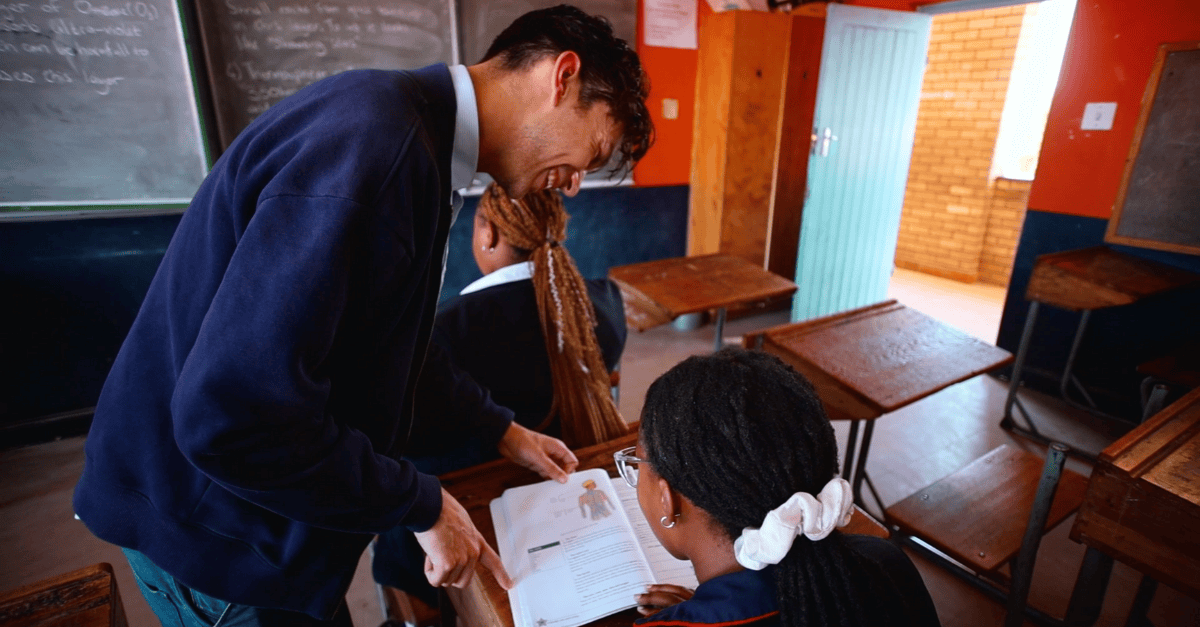Why oral storytelling and reading to children are important

By Nelia Landman, Publisher: English & Afrikaans at Oxford University Press
Some skills come naturally to us as we are biologically designed that way
The skill of reading develops differently in our brains and needs to be explicitly taught for it to be mastered. This means that for children to read well, they need to be taught to read well.
One skill that does come naturally is spoken language. This is evident in the fact that in the early years, many children’s listening comprehension is better than their reading comprehension. Also, storytelling abilities at the age of five strongly predict reading comprehension in later grades (Fisher & Frey, 2014; Spencer, 2023; Stewart, 2021).
Because spoken language comes naturally to children, it doesn’t mean that listening and speaking skills should not be practised and promoted. Oral storytelling and reading to and with children at home and at school have many benefits that support children in learning how to read.
Developing phonological awareness
Phonological awareness is highlighted as one of the main components of teaching children to read, along with phonics, vocabulary, fluency and comprehension. Phonological awareness is the awareness of sounds in words. Some examples of phonological awareness activities include clapping words in syllables, saying rhymes and identifying words that rhyme, identifying sounds in words (for example, recognising the alliteration in sentences), and more (Learning Point Associates, 2004; Department for Education and Skills, 2007; Pretorius & Murray, 2019).
Although phonological awareness activities can be practised in isolation, many of these activities are natural proponents of oral storytelling and reading to children and are effective in creating interest and enhancing the meaning of stories as children actively listen to them.
Promoting oral and written literacy
Reading or telling stories to children improves their word and concept development, which, in turn, develops their speaking and listening skills – skills that are vital for children to develop further literacy skills (Yazıcı & Bolay, 2017). Oral storytelling is also more complex than one may believe, requiring children to listen to and respond using academic language. This helps them to understand more difficult words and sentence patterns in narration, which will later support them when moving on to reading and writing (Spencer, 2023).
Encouraging active engagement, diversity and inclusion
One of the biggest problems that South Africa faces is that many children don’t have access to reading materials in their home language or that caregivers do not read the language that their children may be learning at school.
Oral storytelling is one way to overcome this challenge, as one doesn’t need books for this interaction, and the language needs to be spoken and not read. Oral storytelling also reinforces children's hearing stories from their families and cultures that they may otherwise not be exposed to (Spencer, 2023; White, 2022).
Storytelling and reading stories to children also empower them to become storytellers themselves. Children can actively participate in stories by acting out part of a story, retelling what they thought about it, doing rhymes and songs as part of the listening and speaking process, and more (White, 2022). They are also able to hear what it sounds like when a story is read well, which will help them to tell and read stories with expression.
Supporting socio-emotional development
Everyone thinks in story format, meaning that specific narratives help children understand their world and surroundings (Spencer, 2023). Children can relate to the events in the story and how characters overcome specific problems, which helps them make sense of their own realities and verbally express themselves more clearly and confidently.
In addition to the benefits listed above, reading and telling stories to children creates interest and excitement about books, reading and learning, which will be invaluable to children as they grow into adults.
To spark the joy of reading in your classroom, look for the Aweh! and Aitsa! BigBooks – ideal for shared reading in any Foundation Phase classroom.
Visit the Oxford University Press website to find out more: https://oxford.co.za/
---
Note: This blog is part of Injini’s contributor series. The views and opinions expressed in this piece are those of the author and do not necessarily reflect the views of Injini.



.png)